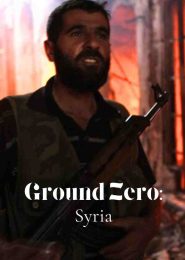The Fog of War (2003)
In the dimly lit corridors of history, where shadows merge with memory, a figure emerges—a man who straddled power, conscience, and the abyss of war. The Fog of War, directed by Errol Morris in 2003, unravels the enigma of Robert S. McNamara, former U.S. Secretary of Defense. Through eleven haunting lessons, the documentary navigates the treacherous waters of modern warfare.
The Architect of Conflict: McNamara, with his sharp intellect and steely resolve, shaped the course of history. From World War II to the Cuban Missile Crisis and the Vietnam War, he stood at the epicenter of decisions that echoed across continents. His life was a chiaroscuro—a dance between duty and doubt.
The Lessons Unveiled: Each lesson in The Fog of War is a prism, refracting truths. We glimpse the fog that enveloped McNamara—the moral haze that veiled his actions. The first lesson, “Empathize with Your Enemy,” echoes through time. McNamara, haunted by the firebombing of Tokyo, grapples with the cost of war. The second lesson, “Rationality Will Not Save Us,” pierces the heart. In the nuclear age, reason teetered on the edge of annihilation.
The Third Lesson: There’s Something Beyond One’s Self: McNamara’s voice trembles. He recounts the human toll—the 58,000 American lives lost in Vietnam. The fourth lesson, “Maximize Efficiency,” reveals the calculus of war. Body counts, metrics, and the dehumanization of conflict. The fifth, “Proportionality Should Be a Guideline in War,” is a plea for sanity amid chaos.
The Sixth Lesson: Get the Data: McNamara, the quantifier, sought patterns in chaos. But data can’t measure grief or the weight of a mother’s loss. The seventh, “Belief and Seeing Are Both Often Wrong,” is a confession. McNamara’s hubris collided with reality. The eighth, “Be Prepared to Reexamine Your Reasoning,” is a mirror. He grapples with the Vietnam quagmire—the war that devoured ideals.
The Ninth Lesson: In War, Innocents Always Suffer the Most: The screen flickers with napalm-scorched children. McNamara’s eyes well up. The tenth, You Can’t Change Human Nature, is a lament. The folly of hubris, the limits of reason. The eleventh, There Is Something Beyond One’s Self, echoes like a requiem. McNamara, aging and fragile, confronts mortality.
The Score by Philip Glass: Glass’s haunting music weaves through the lessons. It’s the pulse of McNamara’s conscience—the rhythm of history’s heartbeat. The archival footage—Vietnam jungles, Pentagon war rooms, McNamara’s furrowed brow—becomes our collective memory.
Legacy and Reflections: The Fog of War isn’t just about McNamara; it’s about us. It’s a mirror reflecting the choices we make, the fog that shrouds our intentions. As the credits roll, we’re left with questions: Can wisdom emerge from darkness? Can we learn from the past? McNamara’s lessons linger—a beacon through the fog of our own uncertainties.




